The countertop is one of the most important components of your kitchen. This is where you carry out most of your food preparation and perhaps even have meals. It needs to be hygienic, durable, and tough enough to handle the everyday workings of the kitchen. With the numerous options available in the market, selecting a suitable material for the countertop boils down to a few factors: How often do you cook? How much time are you willing to spend cleaning it? How careful are you and the rest of the household in maintaining it? What look are you going for? And of course, what is your reno budget? Each material has its own set of flaws and advantages. To help you make a decision, we have categorised some of the most popular options according to different price points.
$100 per foot run: Concrete
Once relegated to garage floors, concrete has found its way into the hearts of people and the homes they live in. It is important to note that, similar to other natural materials like granite, marble and wood, concrete is porous and requires professional sealing before use.
Pros:
Concrete countertops are heat-resistant and hard-wearing. Its raw appearance also makes it great for complementing the look of industrial style homes or vintage theme interiors. Alternatively, for a more modern look, the concrete surface can be overlaid with homogeneous tiles.
Cons:
For a hygienic worktop, the concrete surface will require regular re-sealing and waxing. A properly-sealed concrete surface is easy to maintain and needs only to be wiped down with a damp cloth on a daily basis.
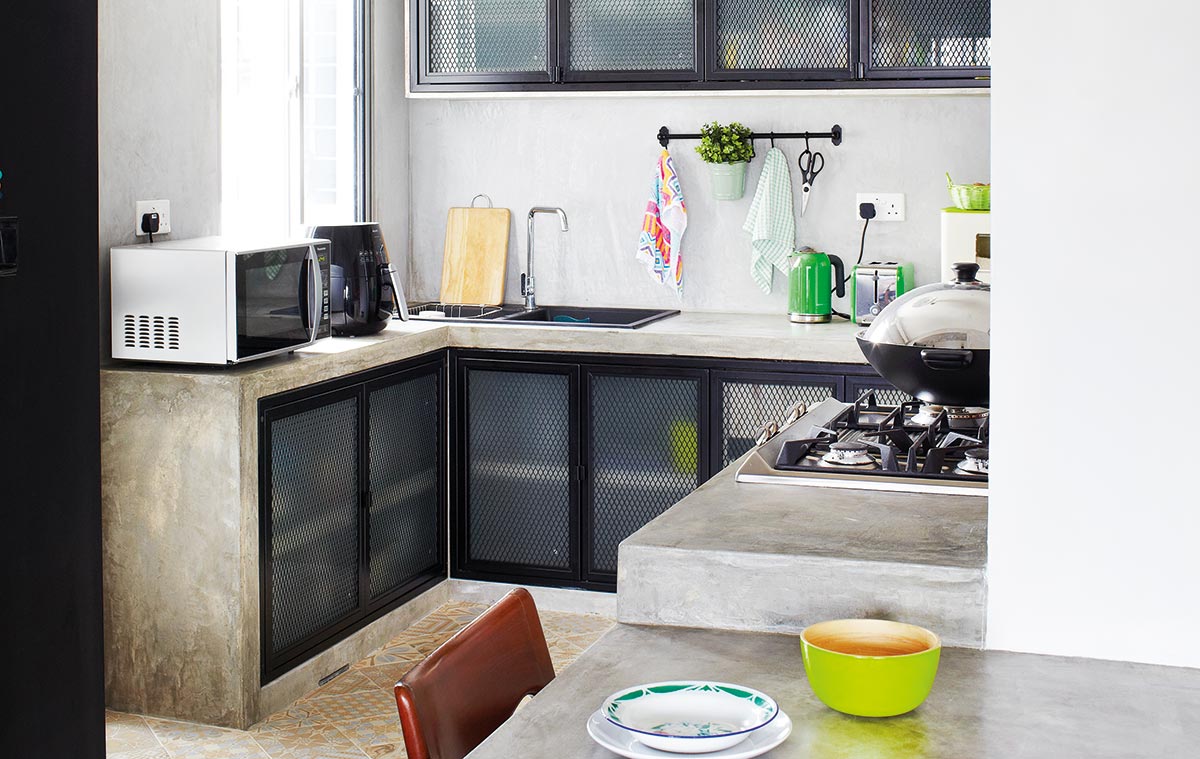
Image credit: The 80s Studio
$100 per foot run: Laminates
Homeowners who prepare only very light meals in the kitchen can consider using laminates for the countertop. Not only is it one of the most affordable options, laminates come in a wide variety of colours and patterns and offers endless design possibilities. Look out for laminates with anti-bacterial properties to create a more hygienic workspace in your kitchen.
Pros:
Laminates are a cost-effective countertop material that can be used for light cooking and quick meals. With so many colours and brands in the market, it is easy to find a design that suits your interiors.
Cons:
Due to its low heat resistance, some laminates can get burnt and become warped if hot objects are placed directly on them. Always use a trivet to prevent damaging the surface.
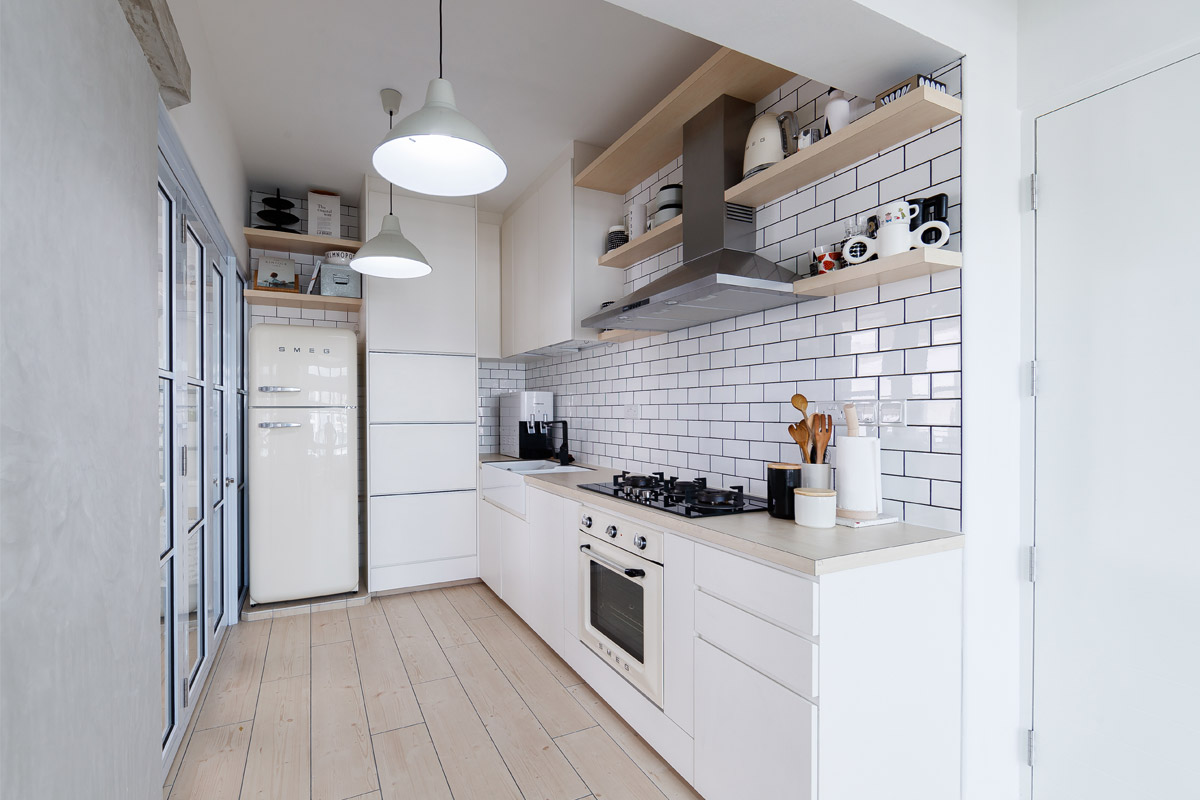
Image credit: Superhome Design
$100 per foot run: Solid surface
Solid surface tops are one of the most popular and commonly seen countertops in the local home. They are durable, beautiful, and available in a wide range of colours. Broadly speaking, there are two kinds of solid surface materials. While both are man-made, one is made with polyester resin and the other is made with acrylic. Solid surface made from polyester resin is less costly and suitable for most budgets.
Pros:
This material can be moulded into any shape and size to fit the dimensions of your kitchen without any joint lines. Available in a variety of patterns and colours, solid surface is extremely versatile and can be used to achieve the look of almost any style or theme.
Cons:
Even though solid surface can withstand high temperatures, it can get discoloured by heat. Use a trivet as much as possible. This material is also vulnerable to scratches, but can be sanded down to have the surface looking new and pristine again. Also, be prepared to go beyond the $100pfr budget if you’re intending to get solid surface made from acrylic, which has better thermoforming quality and is tougher for everyday use.
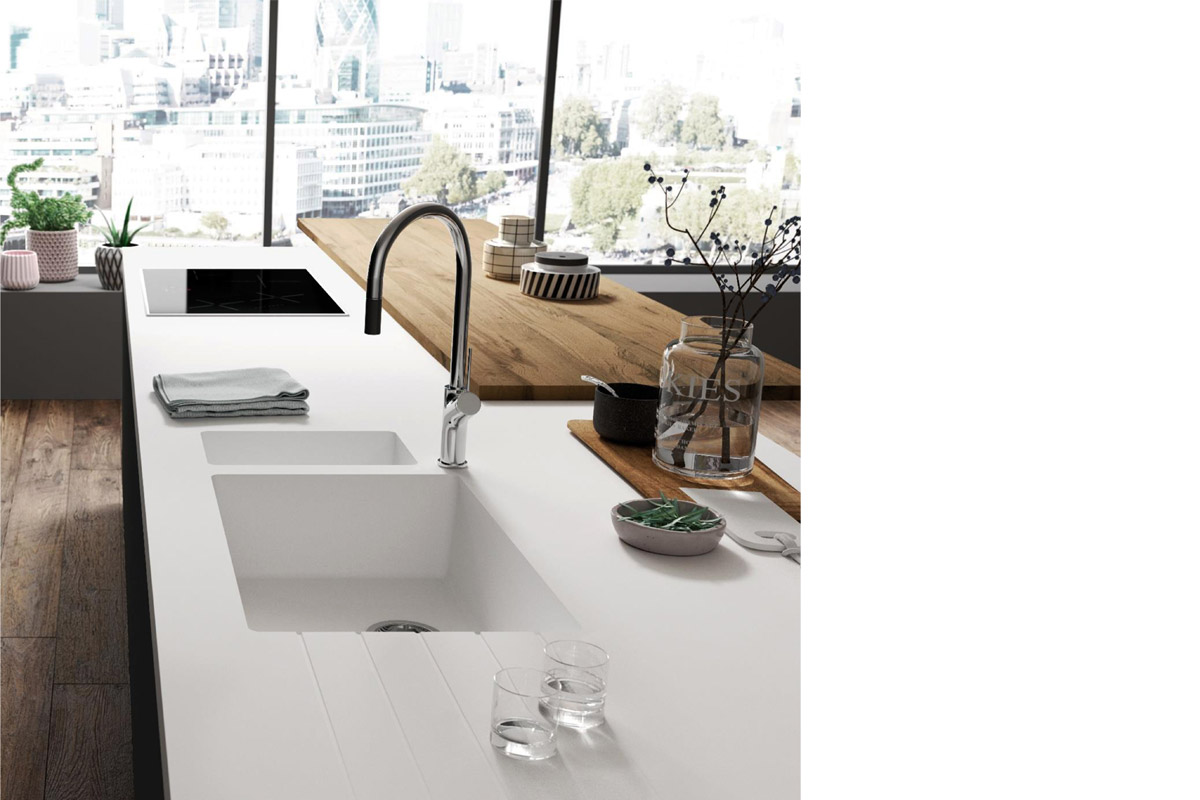
Image credit: Luxx Newhouse
$150 per foot run: Natural stone
Granite and marble are the two popular options when it comes to choosing a natural stone countertop. They are beautiful and add a touch of elegance to the home. Due to their porous nature, these natural stones need to be properly sealed before use.
Pros:
The beauty of natural stone lies in its unique veining. No two pieces are exactly the same, so you will have a countertop that is truly yours. In addition, granite and marble are both heat resistant and durable materials that will definitely stand the test of time.
Cons:
Joint lines will be present for L-shape tops or counters longer than six feet. For marble, depending on the source and rarity of the stone, prices can go beyond $150pfr.
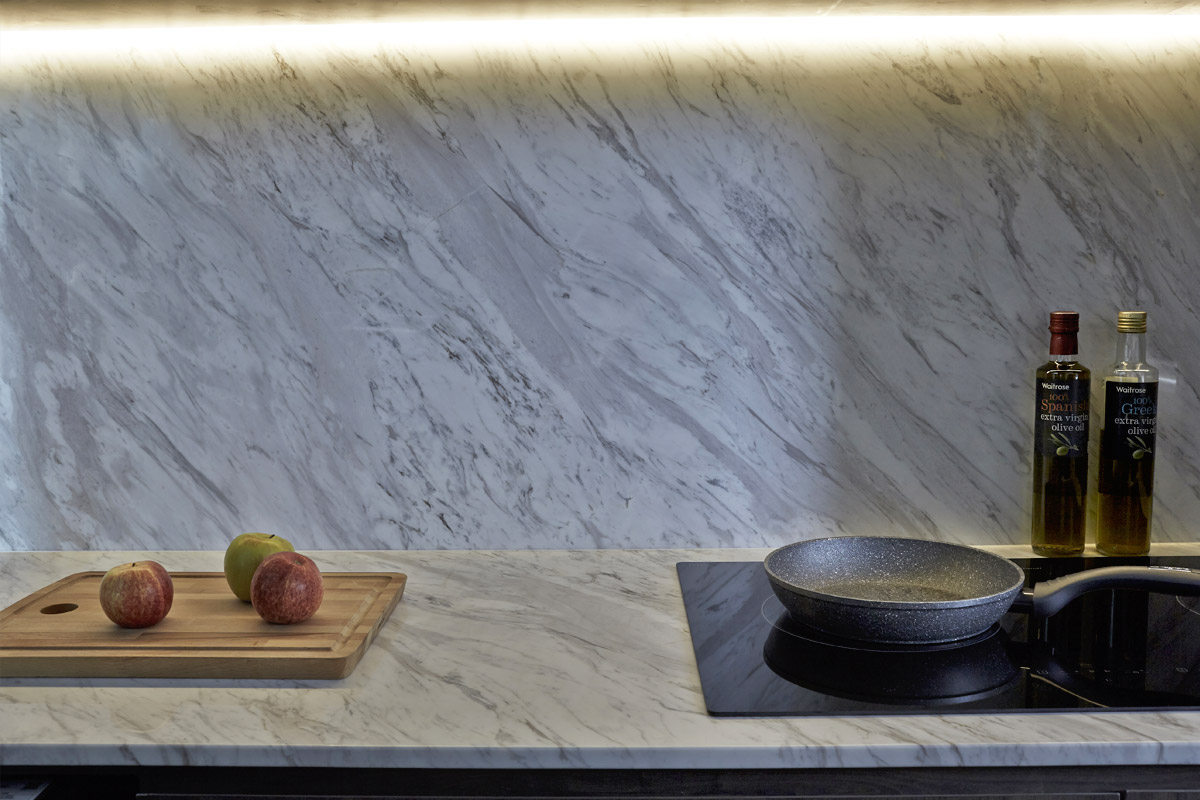
Image credit: Minimo & Minimology
$150 per foot run: Engineered quartz
Sometimes called by brand names such as Caesarstone, Silestone and Smartstone, engineered quartz is a material made from a mixture, of which at least 85 per cent are quartz crystals and the rest, polymer resin. Engineered quartz offers the beauty of natural stone but with added benefits of toughness and zero porosity.
Pros:
Resistant to stains, scratches, and chemicals, engineered quartz is non-porous and does not require sealing. It provides a hygienic surface in a kitchen and with the variety of colours and patterns available, is an ideal alternative to natural stone tops.
Cons:
Depending on brand and design, the price of engineered quartz surfaces can often go beyond $150pfr.
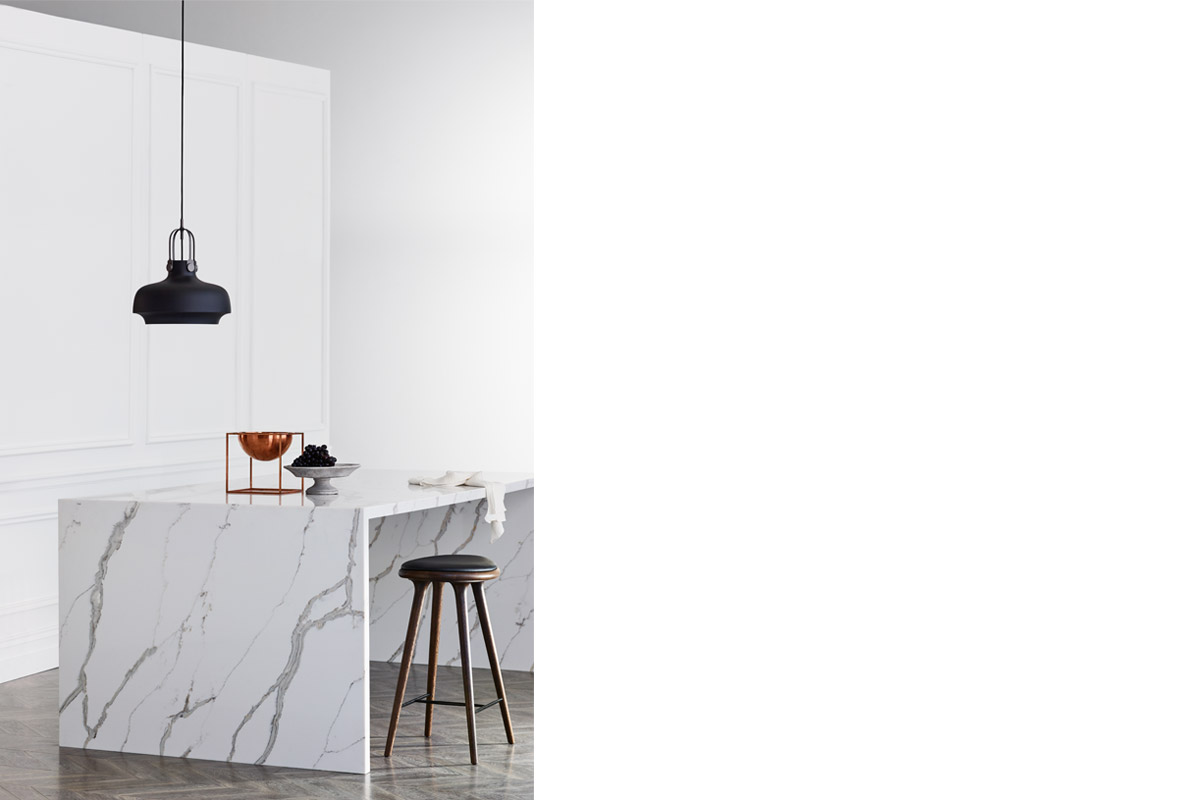
Image credit: Hafary
$150 per foot run: Stainless steel
Stainless steel is commonly used in commercial and professional kitchens because of their non-porous surface and easy maintenance. In recent years, homeowners have begun to recognise the benefits of stainless steel tops and it is no longer a surprise to see this material being used for countertops in home kitchens.
Pros:
Due to its non-porous surface, stainless steel does not get stained and is extremely easy to clean. You can also place hot pots directly on the surface without damaging it. The area where the pot is placed will feel hot to the touch, but not anywhere else along the length of the counter.
Cons:
Stainless steel is susceptible to fingerprints, scratches and dents. Be prepared to put in an extra hour of polishing every week if you’re the type to be bothered by fingerprints and smudges. Alternatively, opt for a brushed finish so that fingerprints are less obvious. If you have an open-concept kitchen, the cold, hard look of stainless steel may not gel with the cosy atmosphere of your home.
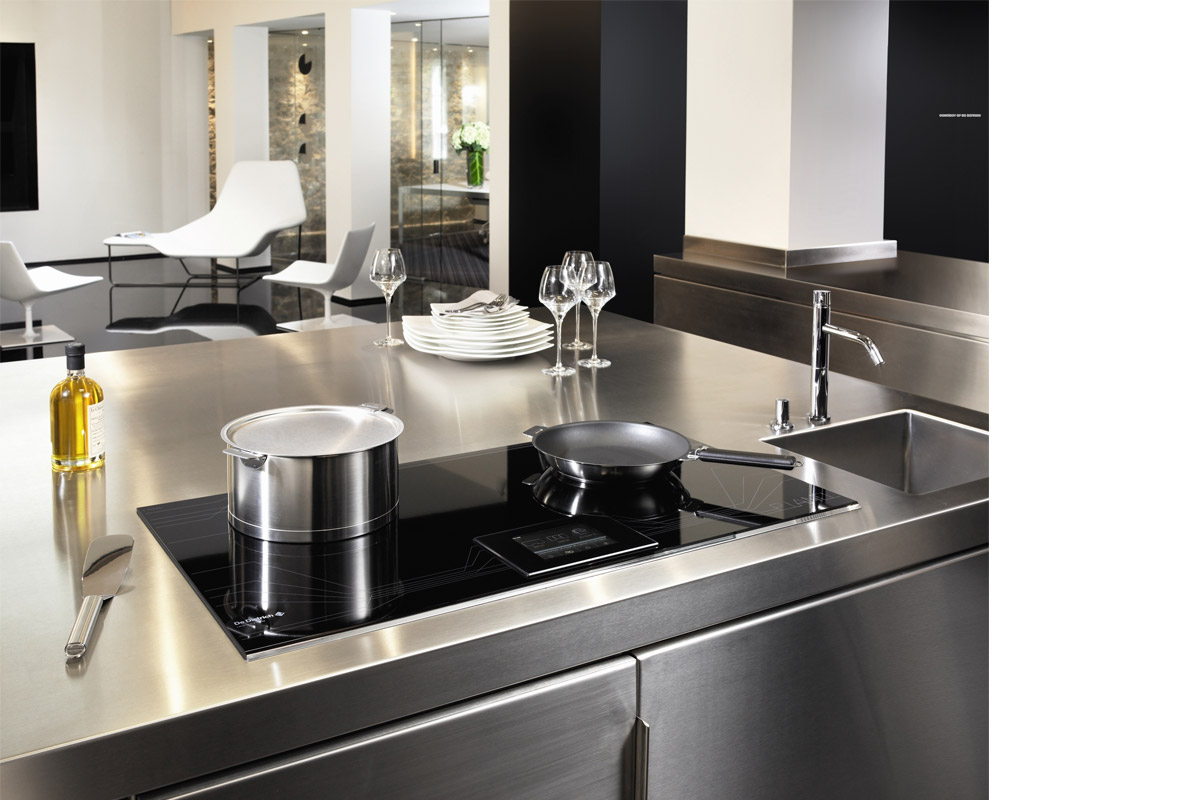
Image credit: De Dietrich
$250 per foot run: Dekton
Manufactured using a high-tech sintering process that simulates accelerated metamorphic change, Dekton is an ultracompact material made from a mixture of natural materials. It promises extremely low porosity and zero micro defects. In addition, the production of Dekton in large slabs allow for the creation of seamless surfaces without any joint lines.
Pros:
Dekton is very easy to maintain as it is highly resistant to scratches, abrasion, stains, and chemicals. It is strong, durable, and able to withstand high temperatures, allowing hot pots to be placed directly on the surface without any damage.
Cons:
Its smooth, sleek appearance may not be suitable if you are looking for something more organic and natural-looking. Also, be prepared to shell out for this very premium product.
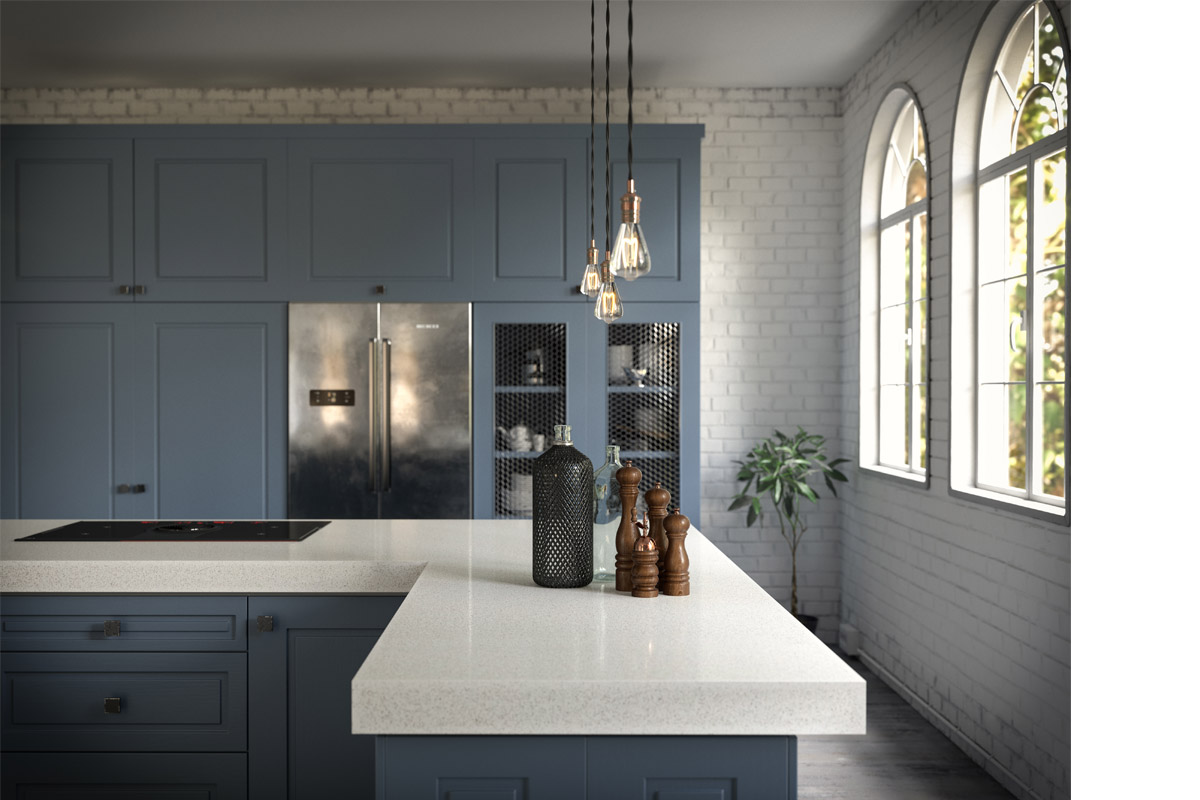
Image credit: Dekton
$250 per foot run: Fenix Nanotech Matt (NTM)
This nanotech material is known for its thermal-healing ability. Micro-scratches on the surface can be easily removed by simply applying heat to the area. Made from nanoparticles and acrylic resins, Fenix is soft to the touch yet extremely functional for the everyday activities in the kitchen.
Pros:
Fenix is anti-fingerprint and resistant to scratches and abrasion. If there are micro-scratches, the surface can be heat-repaired any number of times. Its low light reflectivity also makes it a truly beautiful matt surface.
Cons:
Limited colours and designs are available at this moment, but if a matt surface is what you are looking for, this is it.
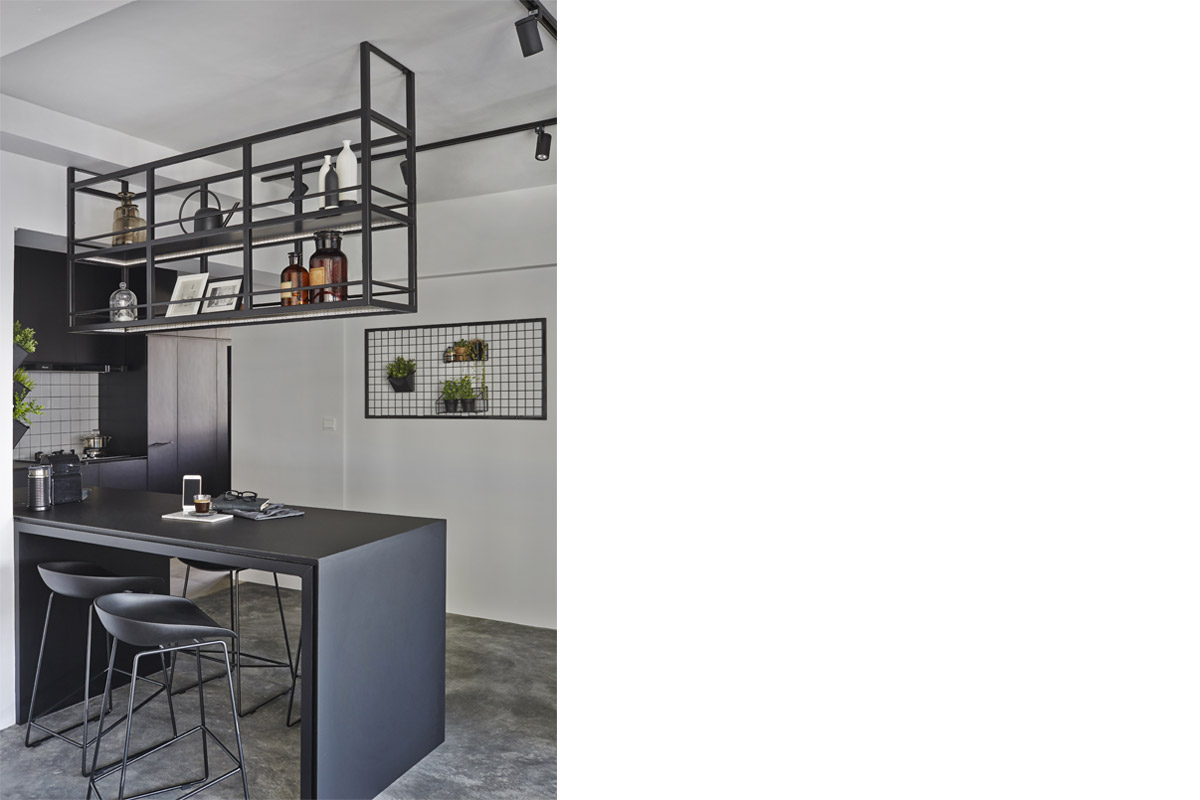
Image credit: Eightytwo
This was adapted from an article originally written by Jasmine Goh published in the May 2018 issue of SquareRooms



